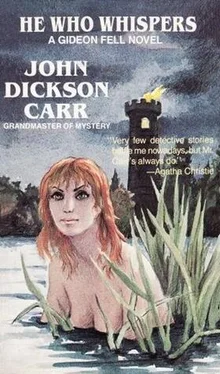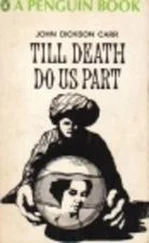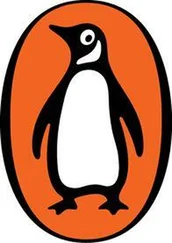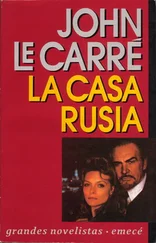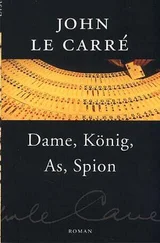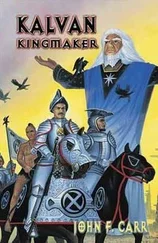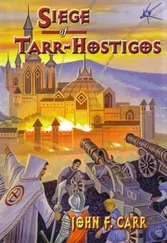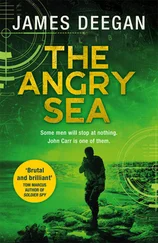“You-harrumph—perceive the point?
“In the back of his own raincoat, as he saw by whipping it off, was a tear through which blood had soaked. But a good lined raincoat will do more than turn rain from outside. It will also keep blood from showing through from inside. If he wore Harry's coat, and somehow disposed of his own, he could conceal that ugly bleeding wound in his back . . .
“You guess what he did. He hastily rolled up his own raincoat, stuffed it into the brief-case, and fastened the straps. He thrust the sword-blade back into its scabbard (hence the blood inside); he tightened its threads and propped it up again. He put on Harry's raincoat. By the time Rigaud had toiled to the top of the stairs, Howard Brooke was ready to prevent scandal.
“But, my eye! How that whole tense shivery scene of top of the tower takes on a different aspect if you read it like this!
“The pale-faced son stammering, 'But, sir--!' The father in a cold buttoned-up voice, 'For the last time, will you allow me to deal with this matter in my own way?' This matter! And then, flaring out: 'Will you take my son away from here until I have adjusted certain matters to my own satisfaction? Take him anywhere!' And the father turns his back.
“There was a chill in the voice, a chill in the heart. You sensed it, my dear Rigaud, when you spoke of Harry, beaten and deflated, being led dumbly down those stairs. And Harry's sullen shining eye in the woo, while Harry wondered what in God's name the old man was going to do.
“Well, what was the old man going to do? He was going to get home, of course, with that incriminating raincoat decently hidden in his brief-case. There he could hide scandal. My son tried to kill me! That was the worst revulsion of all. He was going to get home. And then . . .”
“Continue, please!” prompted Professor Rigaud, snapping his fingers in the air as Dr. Fell's voice died away. “This is the part I have not followed. He was going to get home. And them--?”
Dr. Fell looked up.
“He found he couldn't,” Dr. Fell said simply. “Howard Brooke knew he was fainting. And he suspected he might be dying.
“He saw quite clearly he couldn't get down that steep spiral stair, forty feet above ground, without pitching forward into space. He would be found fainting here—if nothing worse—wearing Harry's raincoat and his own pierced bloodstained raincoat in the brief-case. Questions would be asked. The facts, properly interpreted, would be utterly damning to Harry.
“Now that man really loved his son. He had got two dazing revelations that afternoon. He meant to be very severe with the boy. But he wouldn't see Harry, poor idolized Harry, really in serious trouble. So he id the obvious thing, the only possible thing, to show he must have been attacked after Harry left.
“With his last strength he took his own raincoat out of the brief-case, an put it on again. Harry's now blood-stained too, he thrust into the case. He must get rid of that brief-case somehow. In a sense that was easy, because there was water just below.
“But he couldn't simply drop it over the edge, though the police of Chartres in their suicide theory thought he might accidentally have knocked it over. He couldn't drop it, for the not-very-abstruse reason that the brief-case would float.
“However, on the battlements of the parapet facing the riverside were big crumbling fragments of loose rock. These could be wrenched loose and put into the brief-case, fastened in with the straps, and the weighted case would sink.
“He managed to drop it over. He managed to take the sword-cane from ts scabbard, wipe its handle free from any trace of Harry's touch—that of course was why only his own fingerprints were found on it—and throw the two halves on the floor. Then Howard Brooke collapsed. He was not dead when the screaming child found him. He was not dead when Harry and Rigaud arrived. He died in Harry's arms, clinging pathetically to Harry and trying to assure his murderer it would be all right.
“God rest the man's soul,” added Dr. Fell, slowly putting up his hands to cup them over his eyes.
For a time Dr. Fell's wheezing breaths were the only sound in that room. A few drops of rain splattered outside the windows.
“Ladies and gentlemen,” said Dr. Fell, taking his hands away from his eyes and regarding his companions soberly, “I submit this to you now. I submit t, as I could have submitted it last night after reading the manuscript and hearing the report of Fay Seton's story, as the only feasible explanation of how Howard Brooke met his death.
“The stains inside the sword-stick, showing the blade must have been put back in the sheath and then taken out again before it was found! The bulging brief-case! Harry's disappearing raincoat! The missing fragments of rock from the parapet! The curious question of fingerprints!
“For the secret of this apparent miracle—which was not intended to be a mystery at all-lies in a very simple fact. It is the fact that one man's raincoat looks very much like another man's raincoat.
“We don't write our names in raincoats. They are not of a distinctive colour. They are made only in a few stock sizes; and we know that Harry Brooke “in height and weight,' as Rigaud says, was like his father. Among Englishmen especially it is a point of pride, even of caste and gentlemanliness, for his raincoat to be as old and disreputable as possible without becoming an actual eyesore. When next you go into a restaurant, observe the line of bedraggle objects hanging on coat-pegs and you will understand.
“Our friend Rigaud here never dreamed he had sen Mr. Brooke in two different coats at two different times. Since Mr. Brooke was actually dying in his own coat, nobody else ever suspected. Nobody that is, except Fay Seton.”
Professor Rigaud got to his feet and took little short steps up and down the room.
“She knew?” he demanded.
“Undoubtedly.”
“But after I saw her for a moment at the door of the tower, and she ran away from me, what did she do?”
“I can tell you,” Barbara said quietly.
Professor Rigaud, fussed and fussy, made gestures as though he would try to shush her.
“You mademoiselle? And how would it occur to you to know?”
“I can tell you,” answered Barbara simply, “because it's what I should have done myself.” Barbara's eyes were shining with a light of pain and sympathy. “Please let me go on! I can see it!
“Fay went for a swim in the river, just as she said she did. She wanted to feel cool; she wanted o feel clean. She'd really-really fallen in love with Harry Brooke. IN circumstances like that it'd be easy” Barbra shook her head, “to convince yourself . . . well! That the past was the past. That this was a new life.
“And then she'd just crept up to the tower, and heard. She heard what Harry had said about her. As though instinctively he knew it was true! As though the whole world could look at her and know it was true. She'd seen Harry stab his father, but she didn't think Mr. Brooke was seriously hurt.
“Fay dived into the river, and floated down towards the tower. There were no witnesses on that side, remember! And—of course!” cried Barbara. “Fay saw the brief-case fall from the tower!” Barbara afire with this new realization, turned to Dr. Fell. “Isn't that true?”
Dr. Fell inclined his head gravely.
“That, ma'am, is whang in the gold.”
“She dived down and got the brief-case. She carried it with her when she left the river, and hid it in the woods. Fay didn't know what was going on, of course; she didn't realize until later what must have happened.” Barbara hesitated. “Miles Hammond told me, on the way here, what her own story was. I think she never realized what was going on until . . .”
Читать дальше
